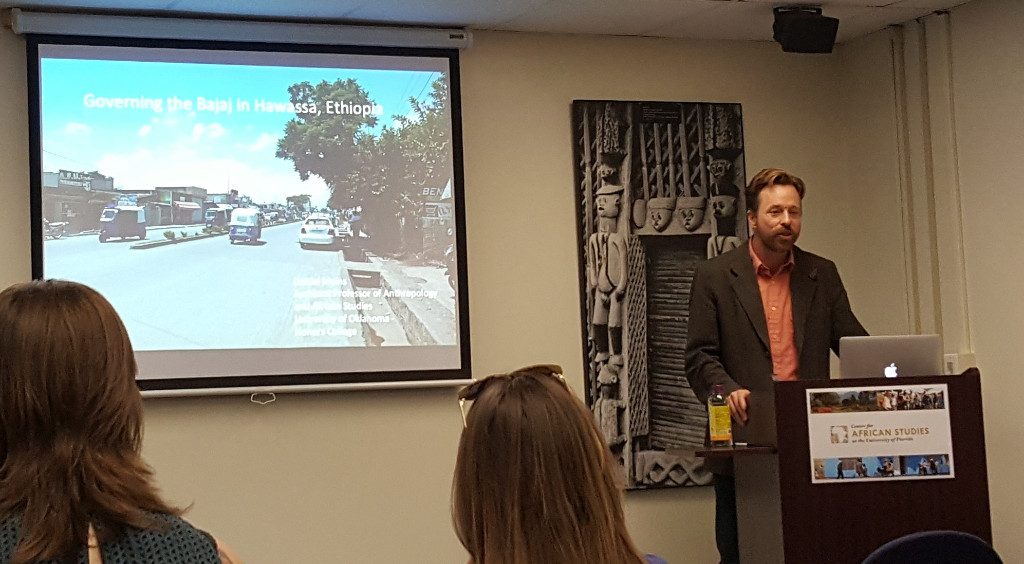 On Friday February 17th, Daniel Mains gave a Baraza presentation titled “Governing Three-Wheeled Motorcycle Taxis in Urban Ethiopia: States, Markets, and Moral Discourses of Infrastructure.” Dr. Mains is Assistant Professor of Anthropology and African Studies at the University of Oklahoma. The talk focused on the politics of governing baja (3-wheeled motorcycles) in Hawassa, Ethiopia as politicians seek to implement a more modernized vision for the city.
On Friday February 17th, Daniel Mains gave a Baraza presentation titled “Governing Three-Wheeled Motorcycle Taxis in Urban Ethiopia: States, Markets, and Moral Discourses of Infrastructure.” Dr. Mains is Assistant Professor of Anthropology and African Studies at the University of Oklahoma. The talk focused on the politics of governing baja (3-wheeled motorcycles) in Hawassa, Ethiopia as politicians seek to implement a more modernized vision for the city.
The talk opened with a re-creation of a March 2013 strike event when a majority of the baja drivers went on strike and essentially shut down the entire city for the day. Though the city has long depended on bajas for transportation around the city, the government has increasingly placed regulations on the industry, which are seen by baja owners and drivers alike as attempts to expel the baja transport industry from Hawassa all together. Beginning in 2012, all baja now have to travel on specific routes, with pre-determined fares. Prior to that decree, bajas could travel freely to where they would find a customer base, naturally gravitating, as they argue, to places with greater need. Now that bajas are restricted to routes, using them for travel is more expensive because passengers have to take multiple bajas to access different destinations within the city. Further, contract trips, which are negotiated on a point-by-point basis, are now illegal in the town. Baja drivers vary widely in their willingness to risk receiving a fine for picking up a contract trip.
Since 2012, other changes in transportation policies continue to make baja drivers feel they are being squeezed from the system. Two of the more significant policy changes include a stoppage on the issuing of new baja permits as well as limiting baja transport to secondary streets in town. Public officials critique bajas as unmodern/antiquated forms of transport as well as linking them to moral concerns including claims they encourage prostitution, drugs, and crime. Finally, when the government lowered baja fares because the price of fuel had fallen (this has happened before but fares were not increased when fuel prices again rose), the drivers went on strike as a powerful demonstration of their continued importance to the city.